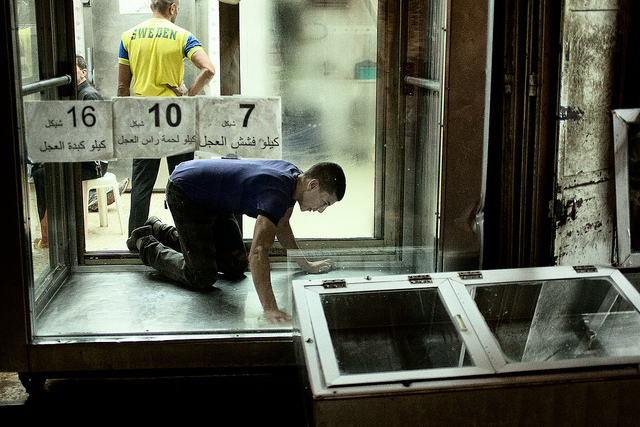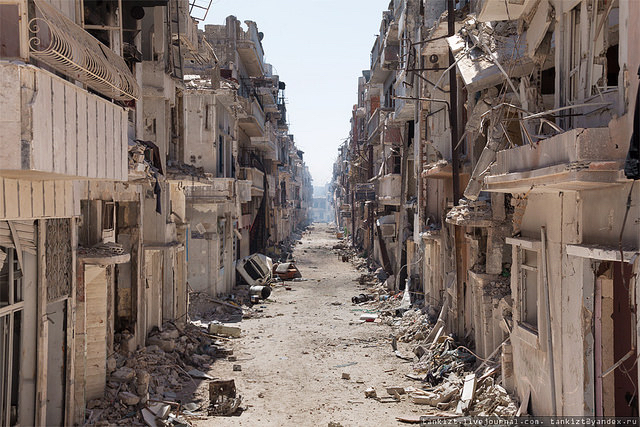On the very first day of my arrival at Jerusalem I had made some observations, during a visit to the church of St. Francis, which gave me any thing but a high opinion of the behaviour of the Catholics here.
This unfavourable impression was confirmed by subsequent visits to the church, so that at length I felt obliged to tell Father Paul that I would rather pray at home than among people who seemed to attend to any thing rather than their devotions.
My Frankish costume seemed to be such a stumbling-block in the eyes of these people, that at length a priest came to me, and requested that I would make an alteration in my dress, or at any rate exchange my straw hat for a veil, in which I could muffle my head and face.
I promised to discard the obnoxious hat and to wear a handkerchief round my head when I attended church, but refused to muffle my face, and begged the reverend gentleman to inform my fellow-worshippers that this was the first time such a thing had been required of a Frankish woman, and that I thought they would be more profitably employed in looking at their prayer-books than at me, for that He whom we go to church to adore is not a respecter of outward things.
In spite of this remonstrance, their behaviour remained the same, so that I was compelled almost to discontinue attending public worship.
On great festival-days the high altar of the church of St. Francis is very profusely decorated. It is, in fact, almost overloaded with ornament, and sparkles and glitters with a most dazzling brilliancy. Innumerable candles display the lustre of gold and precious stones. Foremost among the costly ornaments appear a huge gold monstrance presented by the king of Naples, and two splendid candelabra, a gift of the imperial house of Austria.
I happened one day to pass a house, from within which a great screaming was to be heard. On inquiring of my companion what was the matter, I was informed that some person had died in that house the day before, and that the sound I heard was the wail of the “mourning women.”
I requested admission to the room where the deceased lay. Had it not been for the circumstance that a few pictures of saints and a crucifix decorated the walls, I could never have imagined that the dead man was a Catholic. Several “mourning women” sat near the corpse, uttering every now and then such frantic yells, that the neighbourhood rang with their din.

In the intervals between these demonstrations they sat comfortably regaling themselves with coffee; after a little time they would again raise their horrible cry. I had seen enough to feel excessively disgusted, and so went away.
I was also fortunate enough to visit a newly-married pair. The bride was gorgeously dressed in a silk under-garment, wide trousers of peach-blossom satin, and a caftan of the same material; a rich shawl encircled her waist, and on her feet she wore boots of yellow morocco leather; the slippers had been left, according to the Turkish fashion, at the entrance of the chamber.
An ornamental head-dress of rich gold brocade and fresh flowers completed the bride’s attire; her hair, arranged in a number of thin plaits and decorated with coins, fell down upon her shoulders, and on her neck glittered several rows of ducats and larger gold pieces.
Costumes of this kind are only seen in the family circle, and on the occasion of some great event. Seldom or never are strange men allowed to behold the ladies in their gorgeous apparel; so that it is fruitless to expect to see picturesque female costumes in the public places of the East.
After the marriage ceremony, which is always performed during the forenoon, the young wife is compelled to sit for the remainder of the day in a corner of the room with her face turned towards the wall. She is not allowed to answer any question put by her husband, her parents, or by any one whatever; still less is she permitted to offer a remark herself. This silence is intended to typify the bride’s sorrow at changing her condition.
During my visit, the bridegroom sat next to his bride, vainly endeavouring to lure a few words from her. On my rising to depart, the young wife inclined her head towards me, but without raising her eyes from the ground.
In Jerusalem, almost all the women and girls wear veils when they go abroad. It was only in church, and in their own houses, that I had an opportunity of fairly seeing these houris.
Among the girls I found many an interesting head; but the women who have attained the age of twenty-six or twenty-eight years already look worn and ugly; so that here, as in all tropical countries, we behold a great number of very plain faces, among which handsome ones shine forth at long intervals, like meteors. Thin people are rarely met with in Syria; on the contrary, even the young girls are frequently decidedly stout.

Not far from the bazaar is a great hall, wherein the Turks hold their judicial sittings, decide disputes, and pass sentence on criminals. Some ordinary-looking divans are placed round the interior of this hall, and in one corner a wooden cell, about ten feet long, six wide, and eight feet high, has been erected.
This cell, furnished with a little door, and a grated hole by way of window, is intended for the reception of the criminal during his period of punishment.
Throughout the thirteen days I passed at Jerusalem, I did not find the heat excessive. The thermometer generally stood in the shade at from 20° to 22°, and in the sun at 28° (Reaum.), very seldom reaching 30°.
Fruit I saw none, with the exception of the little apricots called mish-mish, which are not larger than a walnut, but nevertheless have a very fine flavour.
It is a pity that the inhabitants of these countries contribute absolutely nothing towards the cultivation and improvement of their natural productions; if they would but exert themselves, many a plant would doubtless flourish luxuriantly. But here the people do not even know how to turn those gifts to advantage which nature has bestowed upon them in rich profusion, and of superior quality; for instance, olives.
Worse, oil can hardly be procured than that which they give you in Syria. The Syrian oil and olives can scarcely be used by Europeans. The oil is of a perfectly green colour, thick, and disgusting alike to the smell and taste; the olives are generally black, a consequence of the negligent manner in which they are prepared.
The same remark holds good with regard to the wine, which would be of excellent quality if the people did but understand the proper method of preparing it, and of cultivating the vineyards. At present, however, they adulterate their wine with a kind of herb, which gives it a very sharp and disagreeable taste.
On the whole, the neighbourhood of Jerusalem is very desolate, barren, and sterile. I found the town itself neither more nor less animated than most Syrian cities. I should depart from truth if I were to say, with many travellers, that it appeared as though a peculiar curse rested upon this city.
Adapted from A Visit to the Holy Land, Egypt, and Italy, by Ida Pfeiffer (1846.) Photographs courtesy of Mark Nye, Fabio Hofnik, and Montecruz Foto. Published under a Creative Commons license.





